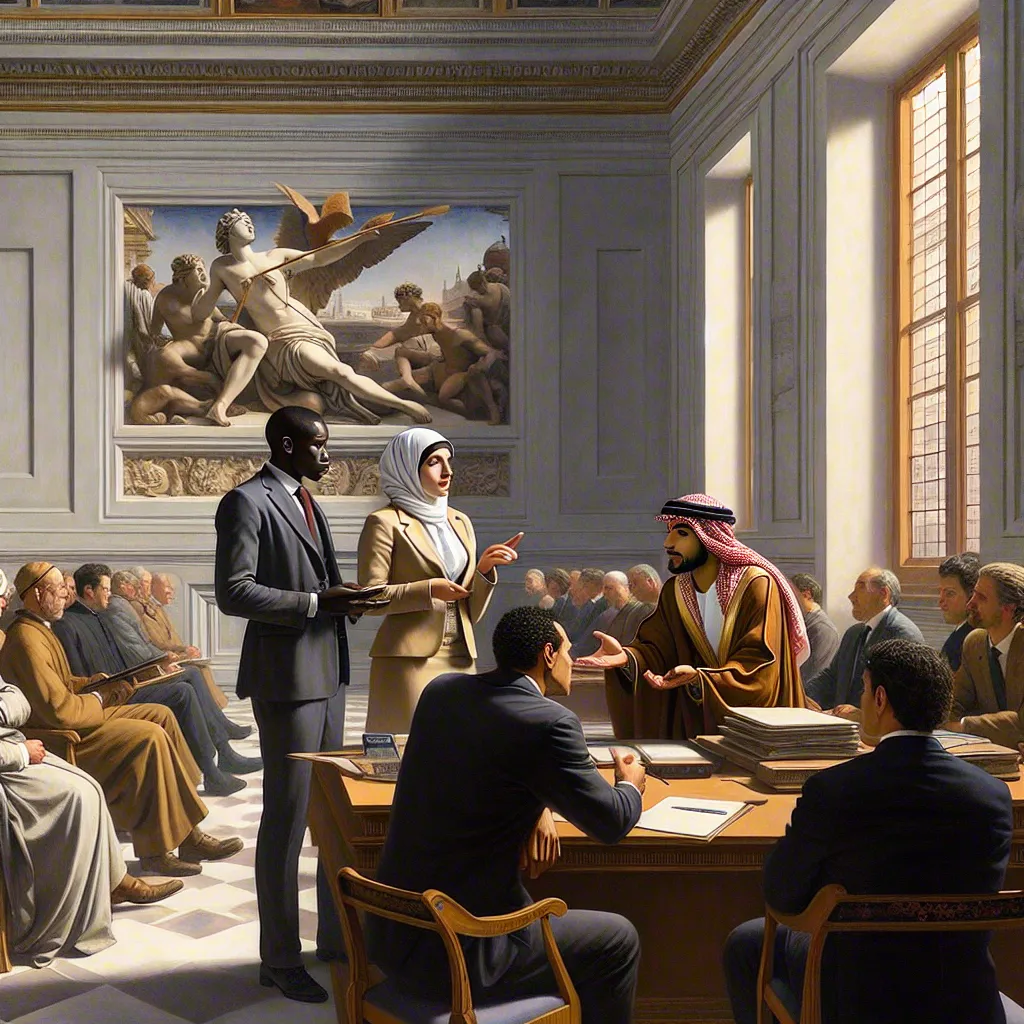
- Published on
- Authors

- Name
- GovCon
The Contracting Officer's Role: Working Effectively with Government Decision-Makers
In the labyrinthine world of government procurement, the contracting officer's role is akin to that of an orchestra conductor. Precisely tuned, their actions orchestrate a symphony of compliance, strategy, and collaboration that ensures seamless interaction between suppliers and government decision-makers. But what exactly does this role entail, and how do contracting officers effectively navigate these complex waters?
The Pivotal Role of Contracting Officers
Contracting officers (COs) are essential players in the federal procurement process. These professionals are not merely gatekeepers; they are vital facilitators who ensure that the needs of government agencies are met in the most efficient, ethical, and cost-effective manner.
Key Responsibilities
Contract Formation and Administration: COs are responsible for the entire lifecycle of a contract — from drafting solicitations to final execution. This includes:
- Crafting Requests for Proposals (RFPs)
- Evaluating bids and proposals
- Negotiating contract terms
- Administering contracts post-award to ensure compliance
Regulatory Compliance: Ensuring adherence to the Federal Acquisition Regulation (FAR) and other pertinent laws and policies is a core function. COs must be well-versed in these regulations to mitigate risks and ensure accountability.
Stakeholder Communication: Maintaining open lines of communication between various stakeholders — including government agencies, contractors, and legal advisors — is crucial. This enhances transparency and facilitates smoother negotiation processes.
Risk Management: Identifying and mitigating potential risks in contracting processes is another critical duty. This involves thorough due diligence and ongoing monitoring and evaluation.
Technical Expertise
To execute their duties effectively, COs must possess a deep technical understanding of the products, services, or projects they oversee. For example:
- Complex Technical Projects: COs need to be familiar with the technical specifications, project timelines, and potential pitfalls that could arise.
- Software Contracts: Understanding the nuances of software licensing, cybersecurity regulations, and data management is essential for these contracts.
Navigating the Decision-Making Landscape
Building Trust with Government Decision-Makers
Trust-building is foundational for COs when working with government decision-makers. To foster a collaborative environment:
- Transparency and Honesty: Providing clear, honest updates about contract performance, potential issues, and resolutions builds credibility.
- Proactive Communication: Regular updates and open dialogues ensure that all parties are aligned throughout the contract lifecycle.
Leveraging Analytical Tools
Modern contracting is data-driven. COs should be proficient in using analytical tools to assist in decision-making:
- Market Research: Tools like the General Services Administration's (GSA) eLibrary can provide valuable insights into supplier capabilities and market pricing.
- Risk Analysis Software: These platforms help identify potential risks and allow COs to devise strategies to mitigate them proactively.
Challenges and Strategies for Success
Adapting to Regulatory Changes
Government contracting is subject to evolving laws and regulations. COs must:
- Continuous Learning: Regularly update their knowledge base through certifications like the Federal Acquisition Certification in Contracting (FAC-C).
- Policy Alerts: Sign up for updates from regulatory bodies to stay informed about new rules and guidelines.
Ensuring Fairness and Integrity
Maintaining fairness in the procurement process is paramount:
- Conflict of Interest Management: Implement strict policies to avoid any real or perceived conflicts of interest.
- Ethical Training: Regular training on ethical standards and practices ensures compliance and fosters a culture of integrity.
Conclusion
The role of a contracting officer is both multifaceted and indispensable. By combining regulatory knowledge, technical expertise, and strong communication skills, COs ensure that government procurement processes are seamless, transparent, and effective. As they continue to bridge the gap between suppliers and government decision-makers, COs play a crucial role in the successful execution of government projects, ultimately serving the public interest with efficiency and integrity.
Stay tuned for more insights into the world of government contracting and the various ways technology and innovation are transforming this essential function.
